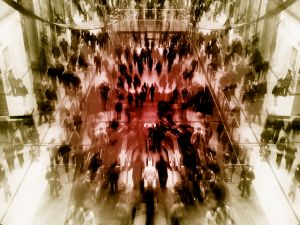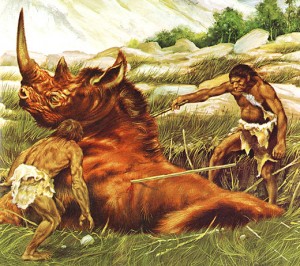Recently my Dad sat me down and regaled me with tales of when he was my age. Mostly because he wanted to elicit this sense of nostalgia like most parents do when their kid is about to graduate from college. But a similar theme kept popping up, and both he and I noticed it: We (or, more specifically, my generation) does not live during a time and place of infinite opportunity and promise.
My Dad graduated from a state university in the seventies. He instantly moved down to Atlanta, GA when he graduated, living mostly on extremely cheap Krystal hamburgers. He likes recalling how he got his first job at a bank when he first got down to Atlanta. He simply walked in and they hired him on spot. Now, I have no delusions that it was that easy for everyone at the time, but my parents moved up the social ladder with little to no exerted effort. I’ve never once heard them speak of hard times, at least not financially, or heard them late at night talking about their worries for the future. And neither my sister nor I ever really went without—though, of course, we never really asked for much as kids.
When I grew up I quickly learned that this was not the reality of most. But I was born in one of the most prosperous nations in the world with very little internal conflict—or so I thought—and grew up with the mentality that I could do, essentially, whatever I wanted. I just simply had to go to college. College was the gateway to a better, more fulfilled, happy, glorious life. A week after graduation and I’ve quickly come to realize how untrue that really is.
But this isn’t another ‘college isn’t worth the trouble’ or ‘the American Dream is all but lost’ or any sort of diatribe to suggest that college isn’t all it’s cracked up to be. It is. College, despite the struggle both during and after, is worth it. And perhaps I might be saying that because I went to a private school on scholarship and had to pay very little back, but I truly believe that the education we receive is worth the debt we incur. I do hope, though, that one day the cost of education won’t be so high and kids won’t have to ruin their lives just to enrich it.
This article, though, I guess is more so a reflection, even a contemplation, of how different an experience our parents lives were compared to the world we inherited. Often times I’ll overhear my parents discuss how they don’t know where it went wrong in terms of this massive debt our nation is incurring, rampant drug abuse, privatization of social responsibilities like medicine, penitentiaries, and even mercenaries, along with a whole host of other problems our society faces that are, quite honestly, to exhausting to list out. Obviously it’s our parents’ generation’s fault. There’s really no one else to blame. They were there, building up this massive empire of capitalism and corporatism and consumerism that would make even the Eisenhower era and Roaring ’20s blush with embarrassment, and so naturally they would deserve much of the blame as to why their kids are in this position.
I can’t say, ‘Yeah, I saw the transition of how things changed.’ I wasn’t there. Neither was my generation. We were simply growing up. And it wasn’t a mentality we inherited. We didn’t become entitlement junkies who thought the world owed us something. I don’t see that. I see confusion and unanswered questions and intelligent individuals turning to answers that are making the problems increasingly worse, and some turning towards answers that are making things better. But after graduating I know we’re no closer to coming to any sort of resolution than we were five or fifty years ago.
Being life as a problem is not a generational thing. I’m sure my Dad, a product of this Holden Caulfield mental paralysis generation, had the same thoughts and temperament of life as a problem when he was younger. The difference between his generation and mine is that the problem has just evolved and grown up.






